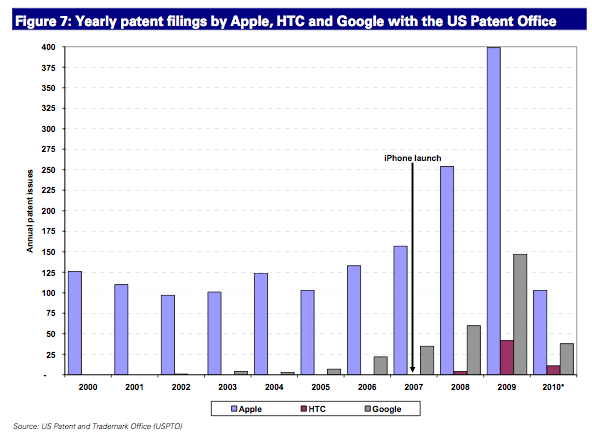In early March, Apple sued HTC for infringing on 20 of its patents which cover everything from the iPhone UI to the iPhone’s core OS. At the same time, Apple also filed a complaint with the ITC seeking a ruling which would effectively prohibit the import of infringing HTC products. In early April, the ITC agreed to investigate Apple’s claims against HTC.
Naturally, HTC vowed to defend itself fully, and earlier today they did just that when they announced that they’d be suing Apple for infringing on 5 of HTC’s patents, and are seeking a ban on the import of all iPhones and iPods.
HTC’s press release reads in part:
Seattle – May 12, 2010 – HTC Corporation today took legal action against Apple Inc., filing a complaint with the United States International Trade Commission (ITC) to halt the importation and sale of the iPhone, iPad and iPod in the United States.
“As the innovator of the original Windows Mobile PocketPC Phone Edition in 2002 and the first Android smartphone in 2008, HTC believes the industry should be driven by healthy competition and innovation that offer consumers the best, most accessible mobile experiences possible,” said Jason Mackenzie, vice president of North America, HTC Corporation. “We are taking this action against Apple to protect our intellectual property, our industry partners, and most importantly our customers that use HTC phones.”
Notably, HTC filed its complaint with the ITC but did not file a corresponding complaint not in Federal Court.
Gizmodo has a breakdown of the allegedly infringing patents over here. From the looks of it, the patents seem pretty weak, and this lawsuit could simply be a desperate attempt from HTC to reach some sort of licensing deal with Apple. Remember, Apple has a rich patent portfolio while HTC’s is pretty barren in comparison. Check out the chart below which measures the number of patent filings by Apple, HTC, and Google over the past few years. If anything, some have speculated that Apple went after HTC precisely because they have no patent portfolio to speak of.






Wed, May 12, 2010
Legal, News